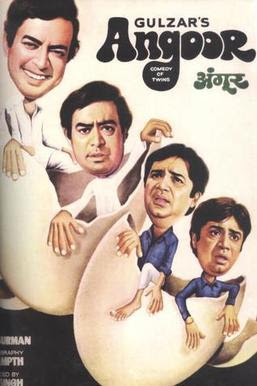A K Hangal (1 February 1914 – 26 August 2012), was a freedom fighter, he spent 3 years in jail during the freedom struggle He was a stage actor till 1966. and later became a character actor in Hindi language films from 1966 to 2005. He has acted in around 225 Hindi films. He had the rare ability to imbue the smallest and the most ordinary of roles with quality and dignity
We all remember him as Imaam Saab of Sholay (1975). He started his Hindi film career at the age of 52 with Basu Bhattacharya's Teesri Kasam in 1966. He mostly played the roles of a father, uncle, or school teacher in many films. He was a member of IPTA was a friend of Chetan Anand who cast him in Heer Ranjha in 1970. His most notable roles are as Ram Shastri in Aaina (1977), as the Inder Sen in Shaukeen, as Bipinlal Pandey in Namak Haraam, as Anokhelal in Manzil.
He was cast in roles that demanded piety, playing characters that carried the burden of their virtuous poverty with quiet and kindly dignity. Shaukeen was the film in which he played, along with Ashok Kumar and Utpal Dutt, a lecherous old man.
He did a number of films with Rajesh Khanna (16 films) a few significant ones with the Amitabh Bachchans and many others. The best performances in his later years were in Shararat (2002) his character roles in Tere Mere Sapne (1997) and Lagaan.
After 2007, Hangal had been suffering from an illness and could not afford the treatment. Hangal made his last appearance in the television series Madhubala – Ek Ishq Ek Junoon in May 2012, in which he had a cameo. Madhubala – Ek Ishq Ek Junoon was a tribute to 100 years of Indian cinema. He also gave his voice for the character of King Ugrasen in the animation film Krishna Aur Kans which was released on 3 August 2012. This was final work in his career before his death. He died on 26th Aug 2012 in Mumbai. The government of India awarded him the Padma Bhushan for his contribution to Hindi Cinema in 2006.


























